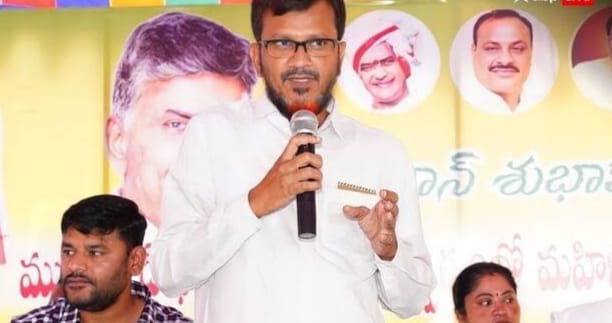Though TDP members in Lok Sabha extended support to Wakf (Amendment) Bill moved by the Narendra Modi government in the Lok Sabha, which was now referred to Parliamentary panel, TDP seems to be facing resentment over several provisions of the Bill from its minority leaders.
The general secretary of the Telugu Desam Party’s minority cell, Fathullah Mohammad, has called certain sections of the Bill “concerning” and urged his party to consult Muslim leaders before backing it in Parliament.
With Muslims making up almost 12-13% of Andhra Pradesh’s population, the TDP wants to ensure that it does not rub the community the wrong way by backing “contentious” clauses of the proposed Bill.
The community, which is concentrated in the Rayalaseema region of the state, is seen to be a significant vote bank of the TDP and seemingly played a crucial role in ensuring a landslide victory in the recent Assembly and Lok Sabha polls.
As YCP is opposing this bill, many TDP’s minority leaders are fearing party’s `unconditoinal’ support to the bill will be detrimental to the political interests of the party. Mohammad elaborates on the concerns and spells out his expectations from the TDP as well as the NDA in a Chat with the Indian Express.
According to him there are at least 40 sections in the Bill that are detrimental to Muslims and the functioning of the Waqf boards. The TDP welcomes the Bill but the changes in the draft Bill are a cause of concern.
“Amendments are meant to strengthen the legislation or law but instead in the draft (of the Wakf Amendment Bill) we find that everything is being diluted. There are five or six major points that need to be addressed”, he said.
The Central Wakf Council has a provision to have two Muslim MPs as members. But, he deplored that this rule has been done away with and a provision has been made to appoint two women as members. “We have no objection to that but the fact that they should be Muslims has been struck off”, he added.
Mohammad expressed concern that the dilution of the Waqf tribunal, which is appointed by the government and has a sitting or retired judge as its head, is another point of contention.
The tribunal ensures that Waqf properties are protected from encroachment. Now, he fears, the Bill gives the power to district collectors, who are likely to heed state government orders. This will start “collector raj” on Waqf land.
Also, the proposal to induct two non-Muslims into the state Waqf board defeats the purpose of Waqf. We fear these amendments will only lead to more encroachment of Waqf properties, he added.

